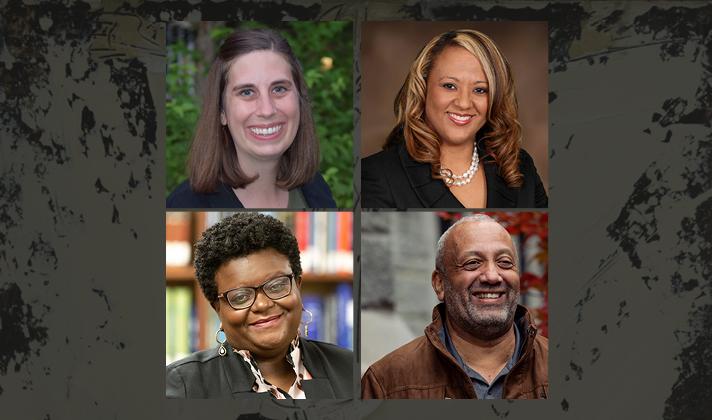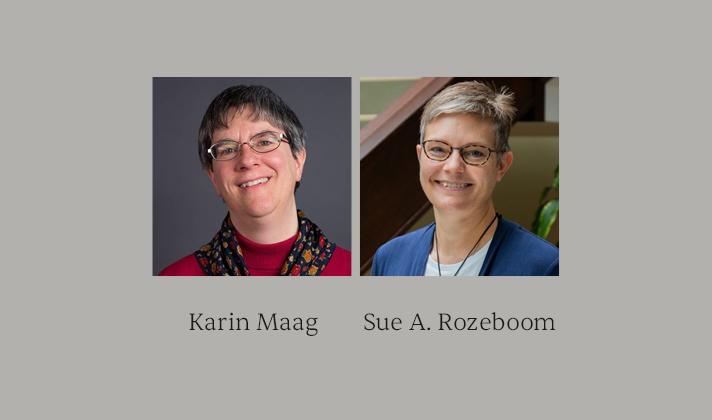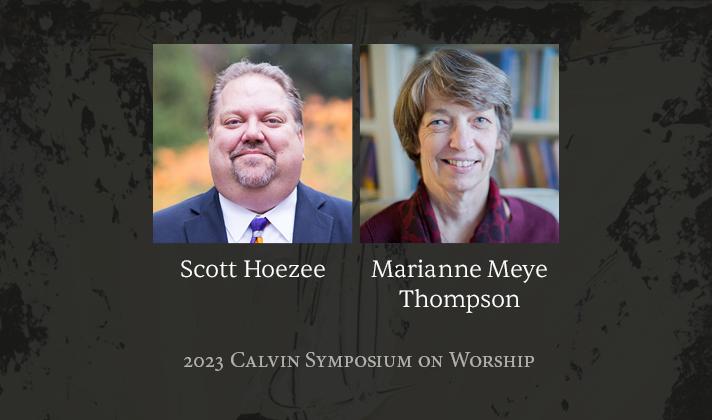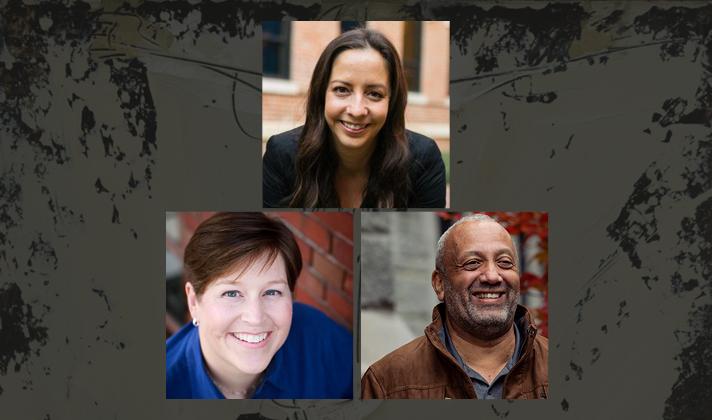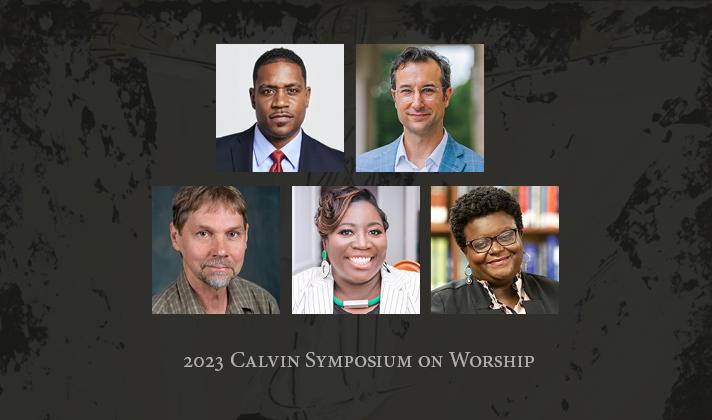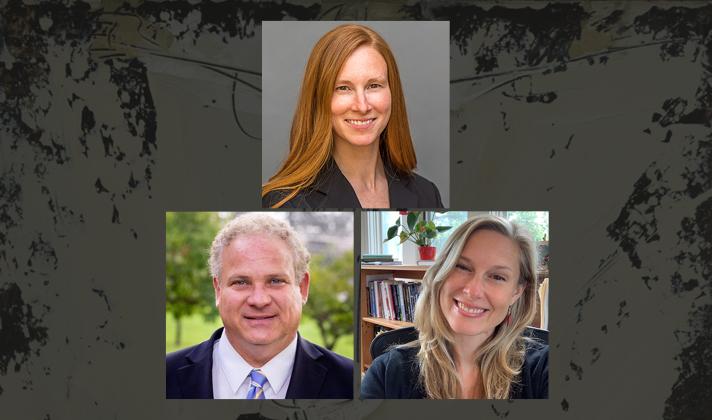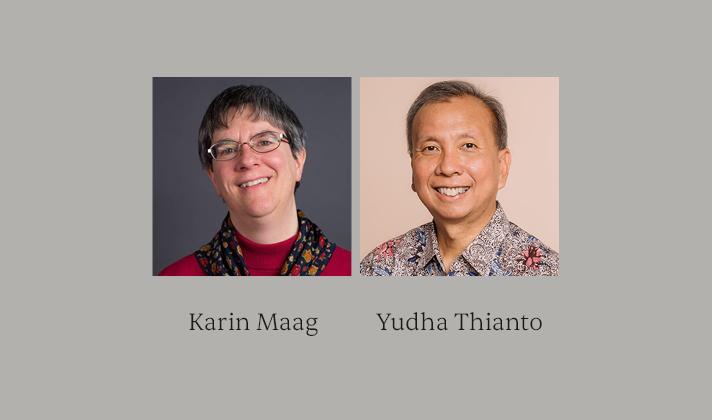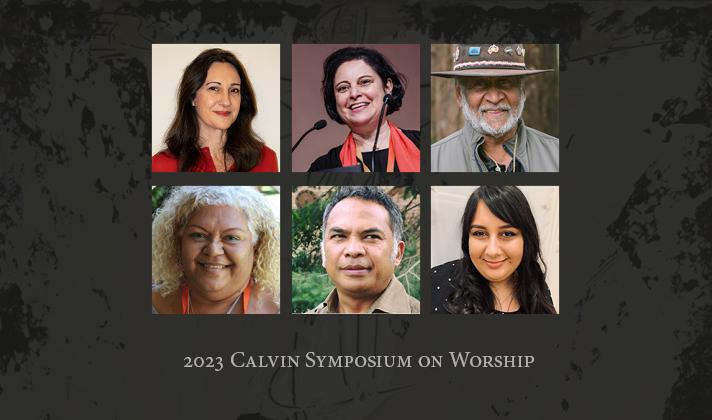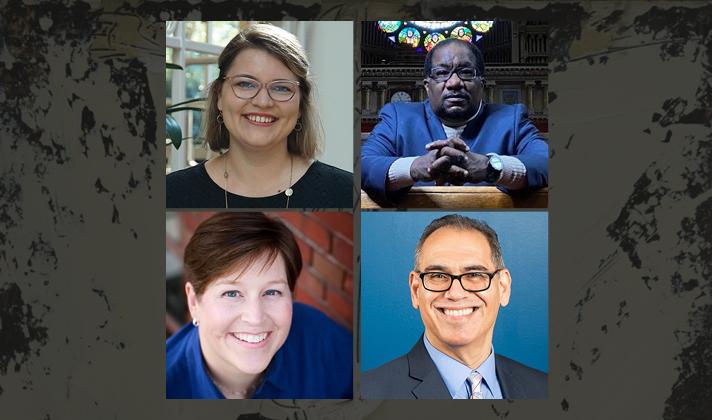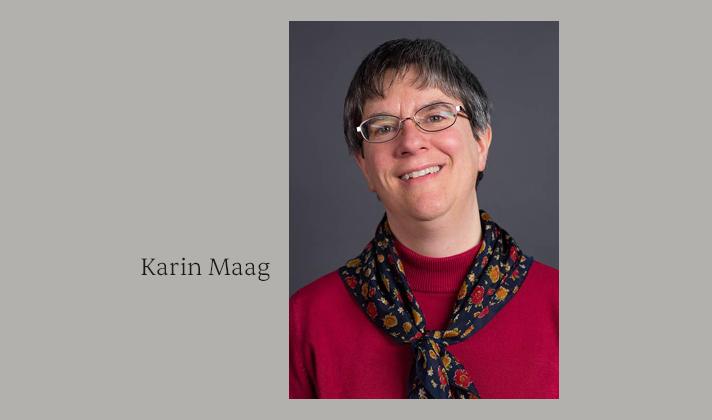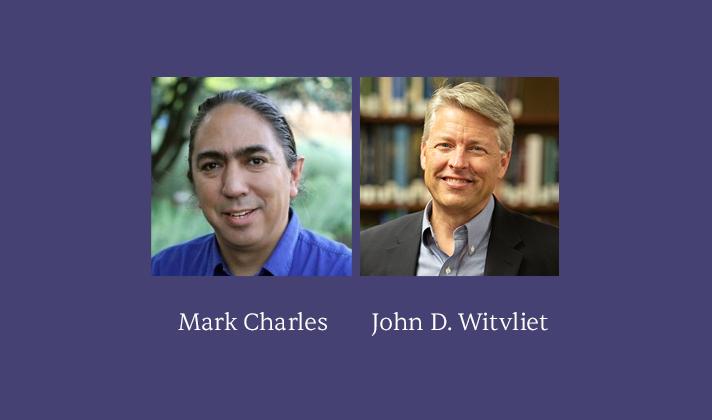Welcoming All Bodies and Abilities into Worship and the Life of the Church
This session explores a biblical view of disability and practical ways of including people with disabilities in every aspect of the church for the flourishing of the entire worshiping community.
Sharing and Serving: The Lord's Supper
This fourth session is part of “Experiencing the Contours of Early Modern Worship,” a series of five linked sessions bringing current-day participants into the world of Reformation Europe. What was it like to attend worship in Wittenberg in 1530, Geneva in 1550, London in 1570, or Venice in 1590? When people in different confessional contexts joined in worship and participated in the sacrament in this period, what differences and similarities were there? Join Sue Rozeboom [Western Theological Seminary] and Karin Maag [Meeter Center] for an overview of the range of perspectives on and practices of this sacrament in the Reformation era.
Metanarratives and Identity: The Challenge and Opportunity of Colossians
In this session Scott Hoezee talks with Marianne Meye Thompson about her Colossians commentary and most particularly about the sweeping claims Paul makes regarding Christ. How does Paul's metanarrative fit in a world that promotes not one, but a diversity of stories, and how does Paul's call to find our identity in the Christ of this grand narrative sound to people today? The session also explores how to preach and teach this message in our present context.
The Fruit of the Spirit, Mental Health Crises, and Our Practices of Christian Worship
In a world of anxiety, depression, and fatigue, how do we both explain and invite people into experiences of profound joy, peace, and gentleness? Where do our practices of worship—our preaching, singing, praying, and communing—contribute to our mental health crises? How might these very practices become means of grace that bring healing and hope? And how might this be true for people in very different generational contexts?
Moving from Dividing Walls of Hostility toward Christian Unity
In this session panelists share best practices for navigating difficult topics that divide the church and discuss the importance of Christian unity.
Singing for Life: Stories of the Transformative Power of Music in Prison
The Handlon Tabernacle Choir began in 2016 and has grown to more than forty students from the Calvin Prison Initiative at Handlon Correctional Facility in Ionia, Michigan. Originally started to provide music for the program’s special events, the choir has become an opportunity for students to develop their musical skills and explore what it means to find new life in community. This presentation will include stories and reflections from members of the choir and the choir director about the impact of music in prison.
Engaging in Communal Worship: Psalms and Psalm-singing
This third session is part of “Experiencing the Contours of Early Modern Worship,” a series of five linked sessions bringing participants into the world of Reformation Europe. What was it like to attend worship in Wittenberg in 1530, Geneva in 1550, London in 1570, or Venice in 1590? When people in different confessional contexts joined in worship and participated in the sacrament in this period, what differences and similarities were there? Join Yudha Thianto [Calvin Theological Seminary] and Karin Maag [Meeter Center] in an encounter with the theory and practice of congregational song in the Reformation era with a particular focus on psalm-singing.
Intergenerational Worship in Global Contexts
Psalm 148 describes a compelling vision of “young and old together” in worship. In every cultural context, there are unique challenges and opportunities in realizing this vision. Come learn from leaders from four continents about how each generation is invited to participate and contribute to worship—and what barriers, challenges, and changes they are experiencing in their contexts. Come away with new questions to ask about your context—and cross-cultural wisdom to share.
Preaching as a Communal Practice
It is tempting to think of sermons as a solo “performance”—something a preacher prepares in isolation. What if we changed our vision to think of preaching as a communal activity from start to finish? How does a congregation shape a sermon as it is being preached? How can preachers intentionally engage the congregation as they prepare sermons and when they discuss or reflect on sermons after worship? We’ll discuss proven practices and try to imagine some new possibilities too.
Joining the Community of Worship: Baptism
This second session is part of “Experiencing the Contours of Early Modern Worship,” a series of five linked sessions bringing current-day participants into the world of Reformation Europe. What was it like to attend worship in Wittenberg in 1530, Geneva in 1550, London in 1570, or Venice in 1590? When people in different confessional contexts joined in worship and participated in the sacraments in this period, what differences and similarities were there? Join Lyle Bierma [professor emeritus of church history, Calvin Theological Seminary] and Karin Maag [Meeter Center] as they present John Calvin's theology of baptism and the practice of this sacrament more widely across the Reformation era.
Experiencing Early Modern Worship
This first session is part of “Experiencing the Contours of Early Modern Worship,” a series of five linked sessions bringing participants into the world of Reformation Europe. What was it like to attend worship in Wittenberg in 1530, Geneva in 1550, London in 1570, or Venice in 1590? When people in different confessional contexts joined in worship and participated in the sacraments in this period, what differences and similarities were there? Join Meeter Center Director Karin Maag in an exploration of congregational worship in early modern Europe from the perspectives of both the clergy and the worshiping community.
Growing into the Prayer Jesus Taught Us
A conversation with Mark Charles and John Witvliet on the Lord's Prayer.

